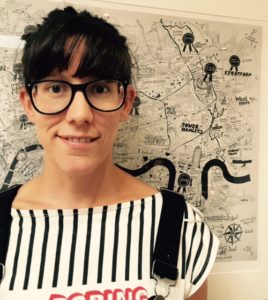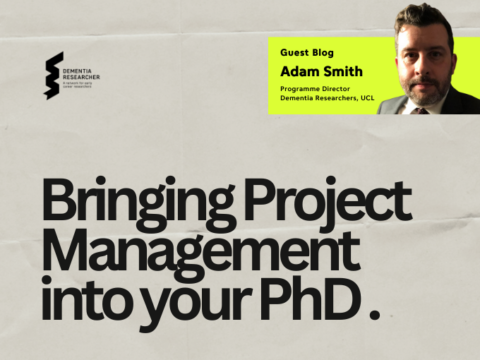Despite feeling like I have only just finished my own PhD – I am now supervising several PhD students myself. I have learnt so much more already and it is genuinely a joyful experience. It has allowed me to reflect on the supervision I received – deepening my understanding of what and how I learnt things. But it has also shown me how challenging it can be the best supervisor for that person.
I started supervising others many moons ago in my prior life as a speech and language therapist. In this context I attended training and read guidance and learnt about strategies akin to coaching, whereby one uses reflective and open questions to support the person to come to their own conclusions and decisions. This approach comes with an empathic, open listening style, that allows the supervisees to bring their own feelings and frustrations to the session and helps them unpack how to cope as well as how to problem solve clinically. It is a supportive model, providing a sense of safety and support whereby clinicians can test out theories, thoughts and ideas to inform their practice. In general, this approach to supervision veers away from didactic teaching practices. It can however, result in a maternalistic feeling, and can prevent people from progressing independently. This is a feeling and explicitly encouraging independence is something I have developed as a supervisory skill.
As a PhD student I started supervising masters projects – initially jointly with my supervisor and then more independently or in collaboration with other early career researchers. The benefit of this joint supervision was vast. We all learn from our own experiences of receiving supervision, but co-supervising with my supervisor felt like an apprenticeship.
Using a goal driven approach, encouraging people to develop their research skills and helping them take responsibility for how to get there is exciting.
Yet equally, being actively involved in their skill development is also satisfying. Specifically, I was able to refine the way I provided feedback to develop their presentation and academic writing skills. Often this is a process of encouraging students by suggesting how to phrase things, how to structure and paragraph and explaining how to build a narrative. The phrasing of a suggestion is key, followed by direct instructions on how to use feedback e.g. read through the suggested amendments and comments, accept track changes and then go back and address each comment in turn. I have learnt so much about writing from reading other people’s writing, receiving suggestions, and making suggestions to others to improve their writing. Without a doubt this has had a positive impact on my own writing skills.
Having graduated from my own PhD, I have now been able to supervise PhD students. Firstly, as a second supervisor and secondly in a more leading role. Applying for a fellowship which included money for a PhD student (both fees and a wage) was a revelation. I was able to advertise for the position and interviewed six potential students. I feel an incredible amount of responsibility for this person, but they are also an asset to my team. They are working on my fellowship but are also bringing their own perspectives and drives to explore the data. I have applied for two further pots of funding for PhD students and anticipate funding out if I have secured the monies in the next month! Applying for these types of money has enabled me, as a supervisor to provide students with an income and tuition fees. I want to support people who ordinarily might not be able to afford to do a PhD to do one. I want to build a team of researchers and pay forward all the things I have learnt and found so interesting and exciting.
But supervisees- Masters and PhD students don’t just fall into your lap. You have to find them, to invest in them and nurture those relationships. I have learnt to link in with colleagues and suggest working together on a small project to supervise masters’ students. I have asked for guidance on developing my skills. I have promoted research (to allied health professions in particular!) and have asked for mentorship to become a PhD supervisor. Consequently, I have applied for money and asked for help from more experienced colleagues PhD in doing this too. I have also nurtured relationship- supporting people to apply for pre-doctoral funding to do MRes’ has resulted in supporting them to do PhDs (with me!). It feels like I am growing something bigger, with more power to help people with dementia and their family members have better conversations.
Author
Dr Anna Volkmer is a Speech and Language Therapist and Senior Research Fellow in Language and Cognition, Department of Psychology and Language Sciences, University College London. Anna is researching Speech and language therapy interventions in language led dementia and was once voted scariest speech and language therapist (even her children agree).

 Print This Post
Print This Post





How has the author’s experience of supervising PhD students influenced their perspective on their own PhD journey, and what specific aspects of the supervisory role have brought joy and reflection?